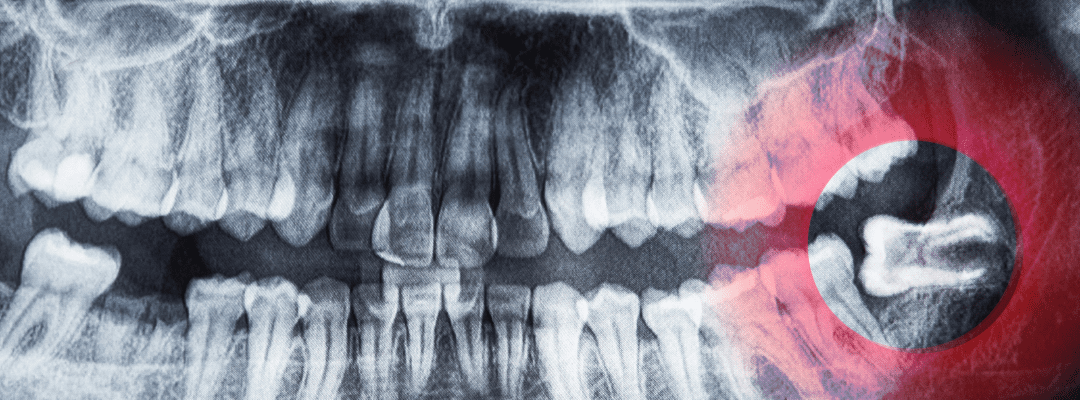Wisdom Teeth Removal in Campbelltown

Wisdom Teeth Removal in Campbelltown
Wisdom teeth, or third molars, usually erupt between the ages of 15 to 25. They do not always erupt properly when they decide to make an appearance, simply because they don’t have enough room in the mouth to accommodate them. They often try but cannot always fit and be in an ideal, upright position. It’s wise to get an early opinion from our dentists so you know if you’ll have a problem or not.
What does “impacted” mean?
When wisdom teeth don’t have room to grow or they haven’t reached their final position by age 25, they are considered impacted. Third molar impaction is the most prevalent medical development disorder. A full set of healthy teeth sometimes doesn’t leave much room for wisdom teeth to erupt.
What kind of problems can impacted third molars cause?
Partially erupted wisdom teeth are breeding grounds for bacteria and germs that may cause infection, and cysts and tumours may grow on a trapped wisdom tooth. Jaw pain and gum disease often occurs when the wisdom teeth are partly erupted. However, it is good to know that some wisdom teeth cause no problems and some wisdom teeth don’t develop at all!
When is it necessary to remove wisdom teeth?
It isn’t wise to wait until wisdom teeth bother you. Early removal, as advised by our dentists, is generally recommended to avoid problems, such as an impacted tooth that can potentially destroy the tooth in front. At an early age, patients should be evaluated by one of our dentists, who can track third molar development with the help of x-rays.
People with symptoms of impaction, such as pain, swelling and infection should have their wisdom teeth removed immediately. However, those with no symptoms can avoid the chance of ever suffering from the pain of impacted wisdom teeth or achieve better orthodontic treatment results, by having them removed. Any surgical or invasive procedure carries risks. Before proceeding you should seek a second opinion from an appropriately qualified health practitioner.
What if I don’t have any wisdom tooth symptoms?
Teeth without any symptoms need to be assessed by our dentist to see if removal is necessary. Removal may reduce the chance of unexplained jaw/joint pain, may be needed to accommodate prosthetic appliances, or to avoid cavities, gum disease, and tumour development.
Need Dental Help?
If you're in need of dental care, don't hesitate to reach out. We're here to help and look forward to assisting you as quickly as possible.
